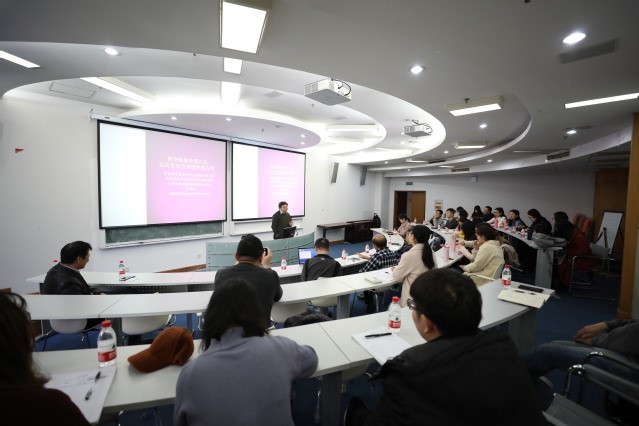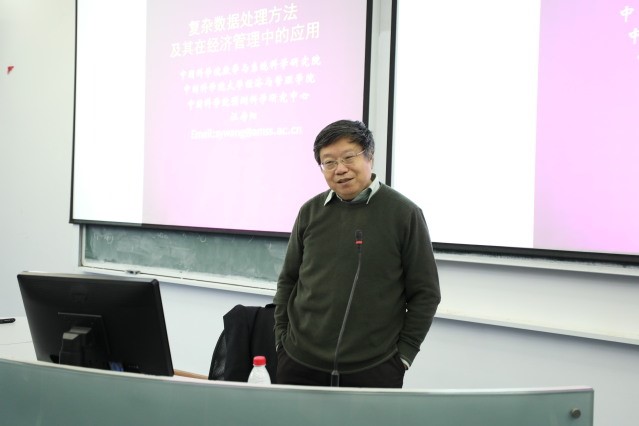On December 19, Professor Shouyang Wang, Academy of Mathematics and Systems Science at Chinese Academy of Sciences, School of Economics and Management at University of Chinese Academy of Sciences, and Center for Forecasting Science of Chinese Academy of Sciences, delivered a speech entitled “Complex Data Analysis and Applications on Economics and Management” at DaXia Economics and Management Lectures. The lecture was chaired by Professor Yong Zhou, Dean of Academy of Statistics and Interdisciplinary Sciences. Over 40 faculty and students attended this lecture.

In this lecture, Professor Wang introduced EMD(Empirical Mode Decomposition), an intuitive, direct and self-adapted data processing approach especially designed for nonlinear and nonstationary data. This approach was first proposed by Norden E Huang in 1988. During 1998-2005, over 30 publications in top journals as 《Nature》,《Science》have applied this approach. In recognition of his contribution, Norden E Huang was awarded as foreign fellow of Academy of sciences, Academy of engineering in many countries.
Professor Wang started with the topic of “Oil price in energy economics”, which is a thesis title of one of his master students. They applied EMD approach and concluded three factors that affect oil price, which are demand and supply, mega-events and normal volatility. Their work is the first attempt to apply EMD approach on energy economics problem. They developed a new theory for oil price mechanism and extended EMD approach by obtaining data decomposition and also data composition. In addition, Professor Wang mentioned further research on specific effects of mega-events on oil price.

Finally, Professor Wang had an active and deep discussion with the audiences on several questions of the fundamental mathematical theories and applications on high-dimensional data problems. He encouraged the audiences to apply EMD approach to various fields. This lecture not only had strengthened the audiences’ understanding of EMD approach and its application on data processing and economic analysis but also provided the idea of how to conduct high quality research.


